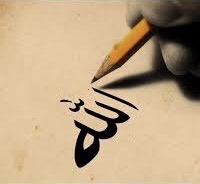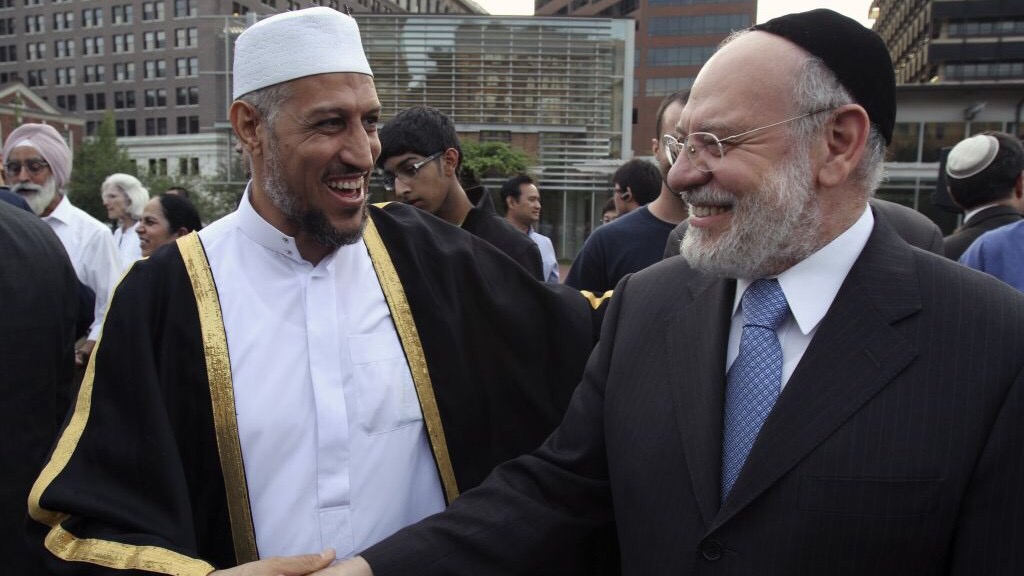In the Name of God: The Extremely and Eternally Loving and Caring
And it came to pass, that, as he [Jesus] was praying in a certain place, when he ceased, one of his disciples said unto him, Lord, teach us to pray, as John also taught his disciples. And he [Jesus] said unto them, When ye pray, say,
Our Father which art in heaven, Hallowed be thy name. Thy kingdom come. Thy will be done, as in heaven, so in earth. Give us day by day our daily bread. And forgive us our sins; for we also forgive every one that is indebted to us. And lead us not into temptation; but deliver us from evil. (Luke 11:1-4)
This is one of my absolute favorite passages of the Bible. It encompasses all the values which I strive to live each and every day as a Muslim. The beginning of the Lord’s Prayer, as it is known, starts with “Our Father in Heaven.”
This “Father in Heaven” is the God whom I worship. Now, of course, I don’t call Him “Father.” Most if the time I call Him “my Lord,” or “my Beloved,” or simply “God.” There are times, however, when I do call him “Allah.”

Now, there are those who claim that “Allah” is some sort of foreign god, not the same God of Jews and Christians. In fact, former Senator and Presidential Candidiate Rick Santorum once said,
“Where do you think this concept of equality comes from? It doesn’t come from Islam. It doesn’t come from the East and Eastern religions…It comes from the God of Abraham, Isaac and Jacob, that’s where it comes from.”
Well, the God of Abraham is my God. The Quran says so:
Say: “We believe in God, and in that which has been bestowed from on high upon us, and that which has been bestowed upon Abraham and Ishmael and Isaac and Jacob and their descendants, and that which has been vouchsafed to Moses and Jesus; and that which has been vouchsafed to all the [other] prophets by their Sustainer: we make no distinction between any of them. And it is unto Him that we surrender ourselves.” (2:136)
When a “certain ruler” came to Jesus and asked him, “Good Master, what shall I do to inherit eternal life?” (Luke 18:18), Jesus replied: “Why callest thou me good? none is good, save one, that is, God” (Luke 18:19). The “only thing that is good” according to Jesus is the God Whom I worship.
When, according to the Gospel account in Mark, Jesus was on the cross, he cried out, “Eloi, Eloi, lama sabachthani? which is, being interpreted, My God, my God, why hast thou forsaken me?” (Mark 15:34). The “El” upon Whom Jesus called is the God that I worship.
The overwhelming majority of Muslims call this God by the Arabic name “Allah.” The word “Allah” comes from the same root word that forms the basis for the words used for God in the Bible: “Elohim,” “ha Elohim,” and “ha Eloh.” Pick up an Arabic translation of the Bible, and you will find that the word for God is none other than “Allah.”
What’s more, the very name that Jesus Christ, who spoke Aramaic and not Greek (the original language of the New Testament), is none other than “Alaha,” which is the Aramaic name for God.
The God that I worship as a Muslim is the God of us all. His name has changed from epoch to epoch and people to people, but He is the self-same God of the universe, our Loving Creator Who gave us life and sustains it for us.
Muslims may call Him “Allah,” many Christians may call Him “Father”; to me, there is no difference. What is most important is this: for people of faith, our common belief in a common Lord should serve to help us work together.
Even for those who don’t believe in God, the fact that I do doesn’t alienate me from them. Because of my belief in God, I want to live and work with everyone: to make my America and my world a much better place for all.

